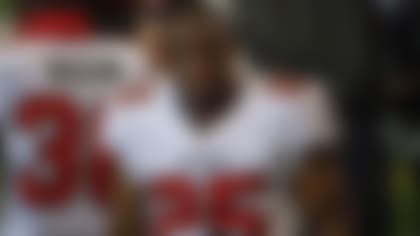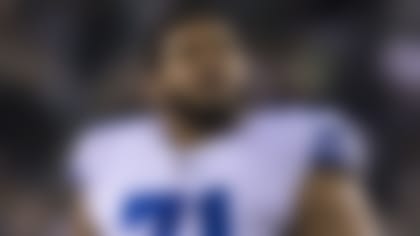The one-game suspension of Baltimore Ravens safety Ed Reed raised plenty of questions about how today's defensive players are being asked to operate.
Ray Anderson, the NFL's executive vice president of football operations, visited ESPN's "Mike & Mike" on Tuesday to clarify why Reed was punished and how he could have avoided league attention on his hit of Pittsburgh Steelers receiver Emmanuel Sanders on Sunday night:
"We want him to hit below the head and neck area," Anderson said. "We'd like to see him use his shoulder, we'd like to see him wrap up in a more traditional technique. But we absolutely do not want to see head-to-head, shoulder, forearm to (the) head or neck area -- no real attempt to wrap and just going missile-like up high. We cannot have those in the game any longer."
Reed had his appeal heard Tuesday morning by Ted Cottrell, the former NFL defensive coordinator who was appointed by the NFL and NFL Players Association to be an arbitrator in such cases, NFL.com's Steve Wyche reports.
ESPN's Mike Golic spoke for many when he argued that Reed in no way launched himself at Sanders, who clearly lowered his head before Reed could adjust.
"Well, Ed Reed unfortunately is a repeat offender, and we put the burdens on the defender to alter his target in those situations where a guy is defenseless," Anderson said. "Here's the bottom line for us: Hits to the head and neck area potentially are life-altering as well as career-altering. We believe that we have enough to show us that, so illegal hits to the head and neck area are our biggest concern and we are absolutely intent on getting those out of the game."
Anderson explained that fining players no longer does the trick and won't be used as the league's primary deterrent.
"(Fines) are not effective, and particularly when we have a repeat offender, and Ed, unfortunately, is a repeat offender," Anderson said. "So that it doesn't have to be a blow-up hit, particularly with a repeat offender if it's in the head and neck area, it's going to be severely evaluated and disciplined. We do not have a choice, given the environment, given what we know, to give the benefit of the doubt -- change is hard, change is difficult."
Change also remains confusing for both the league's defensive players and fans who flock to a sport that markets and sells violence, no matter what the league preaches about player safety.
Reed's hit on Sanders was far from the most egregious act by a defender we'll see this season, but the NFL is treating repeat offenders differently. Changes to the game make sense, but asking defenders to bear the "burden" -- when the "burden" is different from player to player -- hangs out there as a hazy system of measurement and far from an exact science.
Follow Marc Sessler on Twitter @MarcSesslerNFL.












